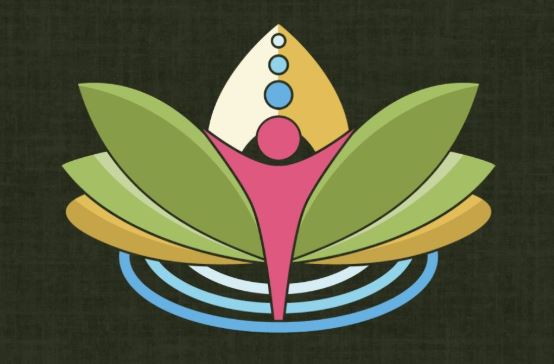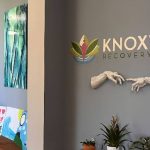Knoxville Recovery Center - TREATMENT REVIEWS
About Knoxville Recovery Center
Knoxville Recovery Center is a comprehensive treatment center that provides medical detox and residential treatment for addiction and co-occurring mental health conditions. Founded by people in recovery, the center offers a range of services, including aftercare services and therapeutic nutrition education, to ensure a more holistic treatment experience.
Our Approach to Treatment
At Knoxville Recovery Center, we believe that addiction treatment should address the whole person, not just the symptoms of addiction. Our residential treatment services include a range of experiential and holistic therapies, as well as evidence-based therapies in group and 1:1 settings. Our team of clinicians, physician assistants, nurses, nurse practitioners, therapists, and counselors work together to deliver personalized treatment that is tailored to each client’s unique needs.
Treatment Assessments and Medical Detox
Our treatment process begins with an initial assessment and medical detox, as needed. During detox, clients receive 24/7 clinical supervision and medication-assisted treatment (MAT) when necessary. Our staff is dedicated to providing compassionate care and support throughout the detox process.
Holistic Recovery from Addiction and Dual Diagnoses
Knoxville Recovery Center is equipped to treat co-occurring mental health conditions using therapy and medications, as needed. We also offer nutritional care and can stabilize clients with eating disorders. Our clients participate in group and 1:1 therapies, including art and music therapy, red light therapy, yoga, breathwork, Qi Gong, and mindful meditation.
Nutrition Education and Comfortable Living
Our center has 36 beds and offers gender-identifying specific wings. Our Tudor-style home features shared bedrooms with ensuite bathrooms, a yoga studio, kitchen, gazebo, and a spacious backyard. Our on-staff chef creates nutritious meals with locally sourced produce, and our therapeutic nutrition program educates clients on nutrition, mindful eating, and exercise.
Aftercare and Community Support
After treatment, clients join our aftercare program, which helps them connect with local community resources, peer recovery groups, treatment providers, and sober living. Our staff is committed to supporting clients throughout their recovery journey.
Center Overview
Founded: 2022
Occupancy: 16-30
Insurance Accepted: Yes
Languages: English
Estimated Cash Pay Rate
Per day: $850-$1,000
7-15 days: $7,000-$12,000
Estimated Cash Pay Rate (without insurance): $10,000 – $30,000
Who We Treat
At Knoxville Recovery Center, we cater to a diverse range of clients, including:
- Men and Women
- Young Adults (18-25)
- Older Adults (55+)
- LGBTQ+
- Midlife Adults (40+)
Accreditation and Contact Information
Accreditation: Joint Commission
Address: 7447 Andersonville Pike, Knoxville, TN 37938
Treatment Focus: Substance Use and Co-Occurring Mental Health
FAQs
How much does Knoxville Recovery Center cost?
While costs may vary due to program length and insurance benefits, it typically costs $10,000 – $30,000.
What therapies does Knoxville Recovery Center offer?
The following therapies are included: 1-on-1 counseling, meditation & mindfulness and more.
Where is Knoxville Recovery Center located?
Knoxville, Tennessee, United States.
What insurance does Knoxville Recovery Center accept?
Knoxville Recovery Center proudly works with most major insurance providers. Admissions experts can provide a free, confidential benefit verification.
How long is treatment?
The typical length is 16 days.
Does Knoxville Recovery Center offer detox?
Yes, we offer detox.
What levels of care does Knoxville Recovery Center offer?
Knoxville Recovery Center provides detox, intensive family program and more.
Knoxville Recovery Center- Cost/Prices, Center/Clinic/Retreat/Resort Facilities, Inpatient Treatment Program Services
- Title Knoxville Recovery Center
- Treatment Program Addiction / Mental Health / Alcohol Addiction / Drug Addiction / Detox / Anxiety Disorders / Depression / Dual Diagnosis / Bipolar
- Location United States/ Tennessee
- Languages English
- Accommodation Private Room
- Environment City
- Approach Medical, Holistic, One to One, Group
- Method Nutritional Coaching, Music Therapy, Yoga, Medical Detox
- Aftercare Yes
- Amenities Fitness Center, Walking, Leisure Activities
- Gender Women & Men
Knoxville Recovery Center Contact
- Website https://www.knoxvillerecoverycenter.com/
- Phone +1 8658303967
- Address 7447 Andersonville Pike, Knoxville, TN 37938, United States.

 Knoxville Recovery Center
Knoxville Recovery Center




